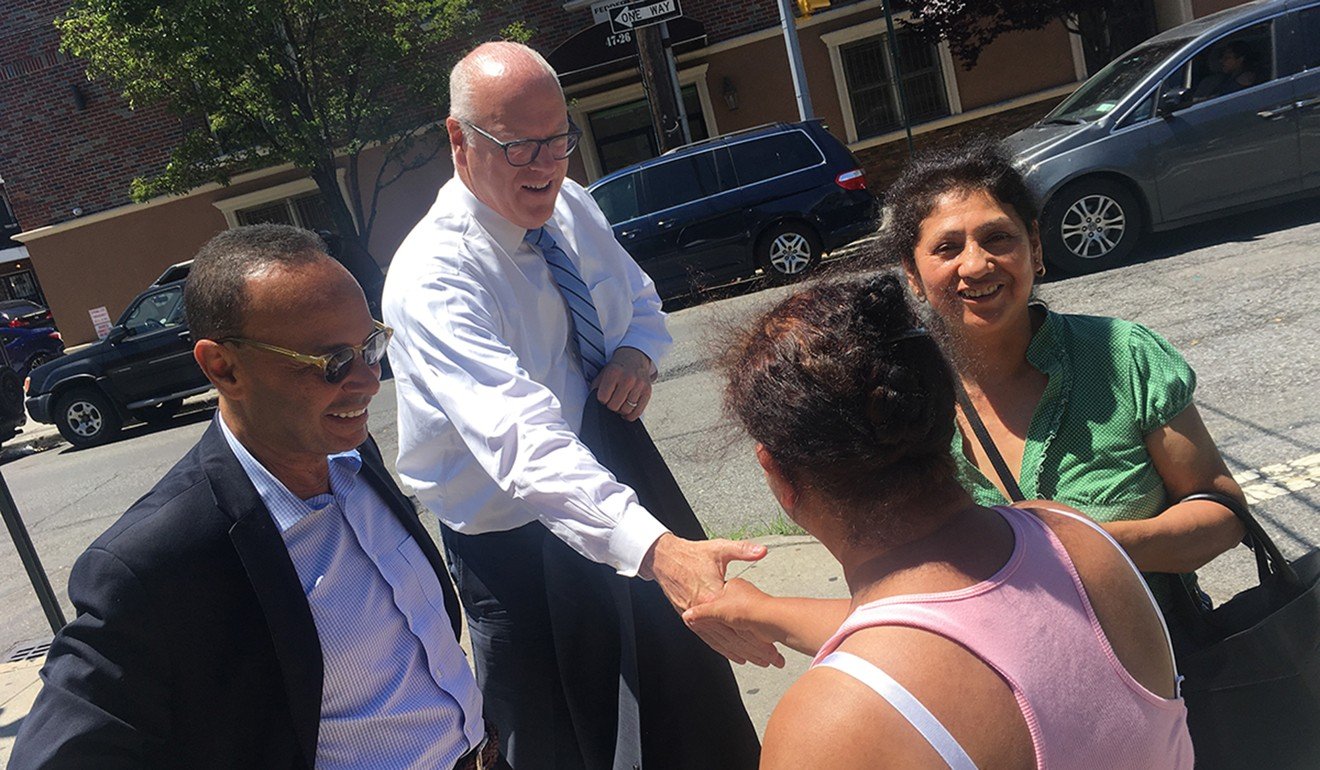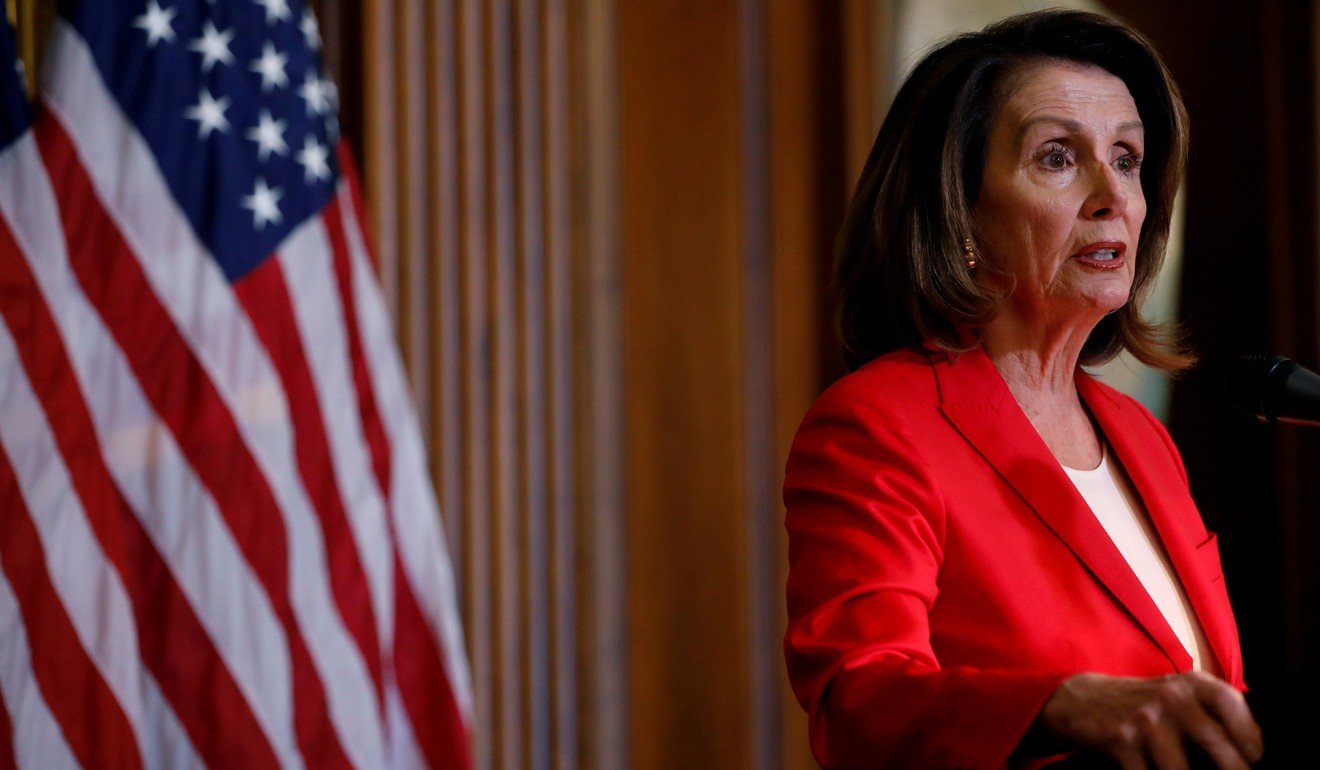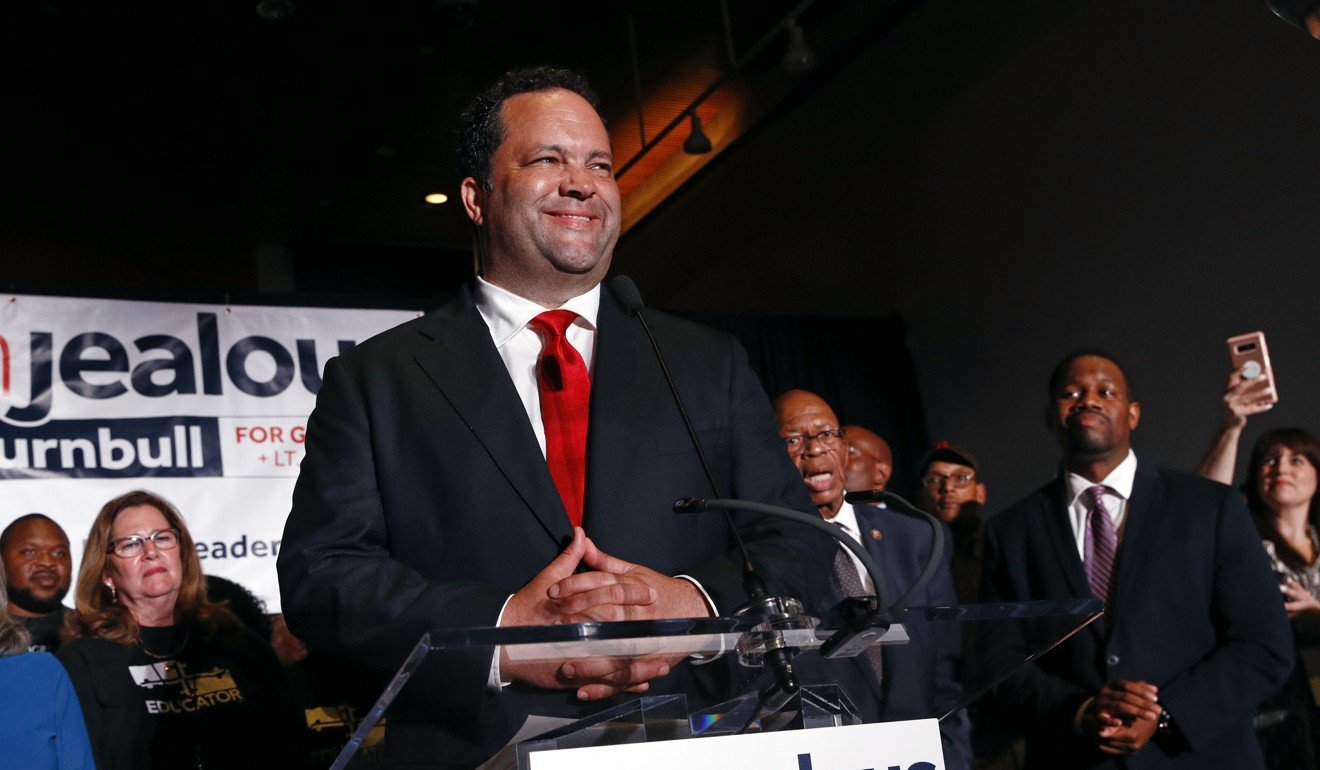Triumph of 28-year-old Sanders socialist over rich incumbent is a seismic shift for US Democrats
Alexandria Ocasio-Cortez, 28, would be the youngest member of Congress if she, as expected, wins in November

A top member of the US House’s Democratic leadership has been blindsided by a fresh-faced candidate who beat him in a New York primary election despite raising one-tenth as much money – and who is now a standard-bearer in the continuing struggle over the party’s identity.
The stunning victory on Tuesday by 28-year-old Alexandria Ocasio-Cortez over long-time Representative Joe Crowley, 56, once seen as a potential House speaker, resulted from a rift between the party’s old guard and a new, more liberal generation. It came in a New York City district that exemplifies the country’s changing demographics.
“I look forward to working towards a takeback of the House on a strong platform of economic, social, and racial justice for working class New Yorkers & Americans,” Ocasio-Cortez wrote on Twitter after prevailing in the primary.
Ocasio-Cortez, who would be the youngest member of Congress if she, as expected, wins in November, is a former organiser for Bernie Sanders and a member of the Democratic Socialists of America.
She joined protesters at the Standing Rock demonstration against a natural gas pipeline in North Dakota. She went to Texas to see conditions at immigrant detention centres near the border.
In the election – one of several primary victories by progressives – Ocasio-Cortez won 57.5 per cent of the vote to Crowley’s 42.5 per cent. The district includes parts of Queens and the Bronx.
When the result was called, a visibly shocked Ocasio-Cortez clasped her hands to her mouth. “Oh my God. Oh my God. Oh my God,” she repeated.
She then said: “We meet a machine with a movement, and that is what we have done today … working-class Americans want a clear champion, and there is nothing radical about moral clarity in 2018.”
.@Ocasio2018 was relatively unknown in city politics less than 24 hours ago.
But as of this morning, she's likely headed the House of Representatives at just 28 years old.
Here's what you need to know about the political newcomer. #MorningsOn1 pic.twitter.com/B7dGUWhMhA— Spectrum News NY1 (@NY1) June 27, 2018
The daughter of a Puerto Rican mother and Bronx-born father, Ocasio-Cortez was raised in a working-class community and took on a second job waiting tables to help her family avoid foreclosure.
In a district where the Census Bureau estimates that 45 per cent of residents were born outside the US, Ocasio-Cortez made immigration and Latino representation a campaign centrepiece.
She seeks to abolish the Immigration and Customs Enforcement (ICE) agency and supports universal health care and a federal jobs guarantee programme.
Like Sanders, she shunned corporate donations and attacked her opponent’s ties to Wall Street, accusing him of being out of touch with his increasingly diverse district.

Crowley, the fourth-ranking Democrat in the House of Representatives, was widely rumored to have ambitions to succeed the Democratic leader in the House of Representatives, Nancy Pelosi, if she stepped down.
He had raised more than US$3 million for his campaign, 10 times the amount raised by Ocasio-Cortez, who rejected corporate sponsors and relied on small donors.
Sanders, the independent senator from Vermont whose presidential campaign excited the progressive base, touted Ocasio-Cortez’s victory as a step forward for the progressive movement.
He said: “She took on the entire local Democratic establishment in her district and won a very strong victory. She demonstrated once again what progressive grass-roots politics can do.”
Pelosi, who is under pressure to step aside and pave the way for a new generation, insisted that the victory for the party’s left wing was not representative of a wider trend.

“They made a choice in one district,” Pelosi said. “The fact that in a very progressive district in New York, it went more progressive … is about that district. It is not to be viewed as something that stands for anything else.”
Asked if Democratic leadership should be more reflective of a party that is increasingly diverse, progressive and young, Pelosi replied: “I’m female, I’m progressive – so what’s your problem? Two out of three ain’t bad.”
In the Republican primary in the Staten Island district of New York City, former Representative Michael Grimm failed in his comeback attempt against the incumbent Dan Donovan.
Grimm, who resigned from Congress after pleading guilty to tax fraud and serving time in federal prison, was trying to retake his old seat and paint himself as the true disciple of US President Donald Trump.
Donovan, a comparative moderate, received Trump’s endorsement as part of an effort by Republicans to keep themselves from making a seat that Obama won in 2012 even more vulnerable in the midterms. Donovan ended up winning easily.
The New York primary was not the only vote on Tuesday. In Maryland, Ben Jealous, the former president of the NAACP, won the Democratic primary for governor against Prince George’s County Executive Rushern Baker.
Jealous ran as an ardent liberal and touted national supporters such as Sanders as he called for free college tuition and marijuana legalization. Jealous will face Larry Hogan, the popular Republican incumbent, in November.
In Colorado, Representative Jared Polis won the Democratic primary for governor. He ran on a left-wing platform, including single-payer health care. He will face Republican Walker Stapleton, a two-term state treasurer and relative of the Bush political family, in November.

The New York primary was not the only one on Tuesday. In Maryland, Ben Jealous, the former president of the NAACP, won the Democratic primary for governor against Prince George’s County Executive Rushern Baker.
Jealous ran as an ardent liberal and touted national supporters such as Sanders as he called for free college tuition and marijuana legalization. Jealous will face Larry Hogan, a popular Republican incumbent, in November.
In Colorado, Representative Jared Polis won the Democratic primary for governor. He ran on a left-wing platform, including single-payer health care. He will face Republican Walker Stapleton, a two-term state treasurer and relative of the Bush political family, in November.
In Utah, former Massachusetts Governor Mitt Romney, the 2012 Republican presidential nominee and a periodic Trump critic, easily won the Republican nomination for US Senate and is the overwhelming favorite to win the seat now held by retiring Senator Orrin Hatch.